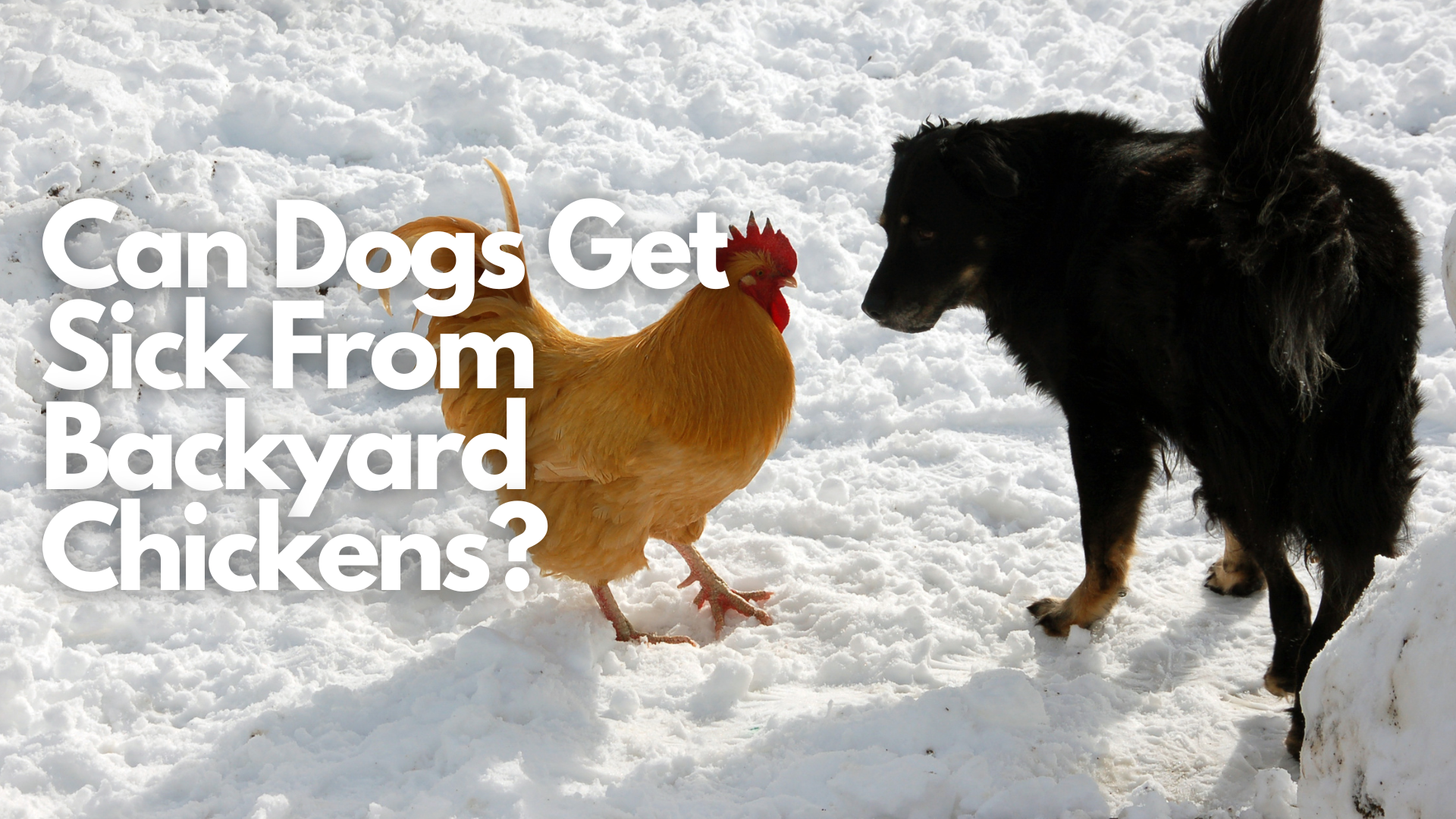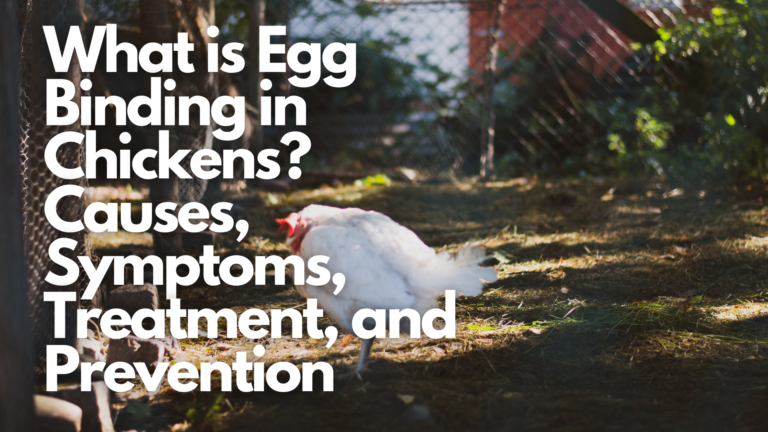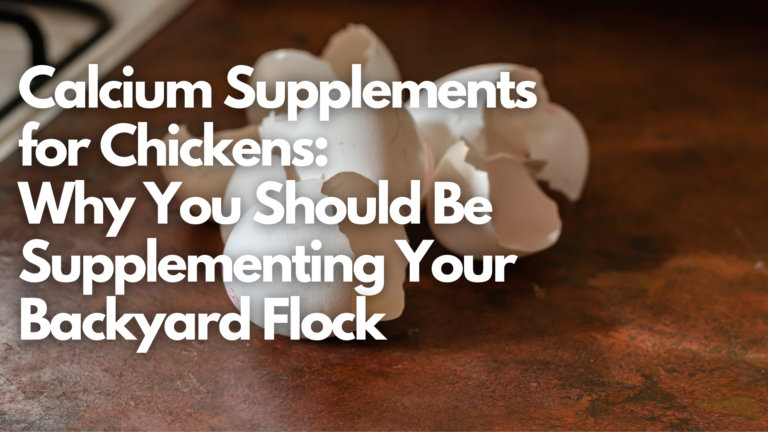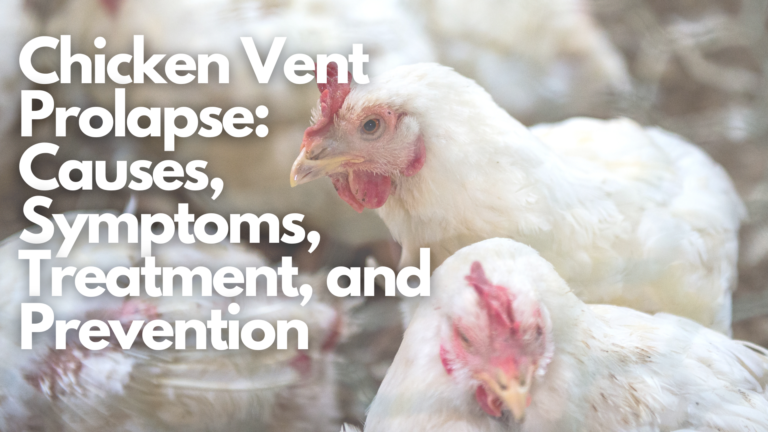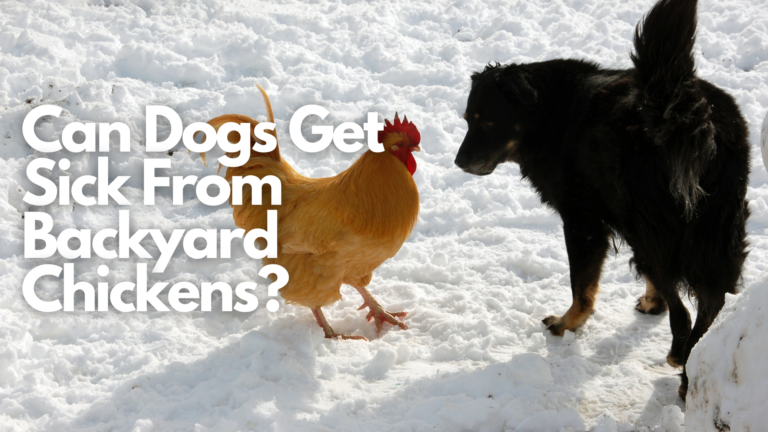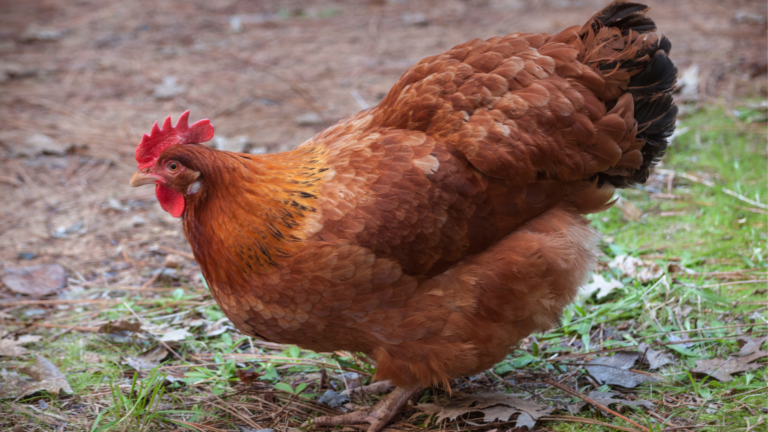Backyard chickens have become increasingly popular among homeowners seeking fresh eggs, natural pest control, and the joy of raising their own flock.
However, if you are a dog owner considering introducing chickens to your backyard, you may wonder about the potential health risks to your beloved canine companion.
If you keep backyard chickens, it is important that you understand whether dogs can get sick from backyard chickens, common diseases that can be transmitted, and important precautions to ensure the well-being of both your chickens and your furry friend.
Understanding the Risks of Keeping Both Chickens and Dogs
While dogs and chickens can coexist harmoniously, there are some potential risks associated with their interaction. It’s essential to be aware of these risks to take appropriate precautions. Here are some common health concerns:
Bacterial Infections
Chickens are known carriers of bacteria such as Salmonella and Campylobacter in their droppings. If dogs come into contact with contaminated feces or consume raw or undercooked chicken products, they can be at risk of bacterial infections. Salmonella and Campylobacter can cause gastrointestinal upset, diarrhea, and even severe illness in dogs. It is essential to practice proper hygiene and handle chicken and chicken products carefully to minimize the risk of bacterial infections in dogs.
Signs and symptoms of bacterial infections in dogs include;
- Gastrointestinal upset, including vomiting and diarrhea
- Loss of appetite
- Abdominal pain
- Fever
- Lethargy
- Dehydration
- Blood in the stool (in severe cases)
Parasitic Infections
Chickens can harbor various external parasites, including mites and lice. If dogs come into close contact with infested birds, these parasites can potentially transfer to them. Dogs can get infested with mites or lice by interacting with the chickens or their living environment.
Additionally, internal parasites like roundworms or coccidia can be present in chicken feces.
If dogs ingest these feces, they can be at risk of contracting these internal parasites. Roundworms and coccidia can cause gastrointestinal issues and other health problems in dogs. Regular deworming and practicing good hygiene can help prevent parasitic infections in dogs.
Signs and symptoms of parasitic infections in dogs due to chickens include:
Parasitic Infections:
- Itching and scratching
- Skin irritation and inflammation
- Hair loss or thinning coat
- Presence of visible parasites, such as mites or lice, on the skin or in the fur
- Diarrhea
- Weight loss
- Anemia (in severe cases of blood-sucking parasites)
- Presence of worms in the feces (in cases of internal parasites)
Avian Influenza
Avian influenza, commonly known as bird flu, is a viral infection that primarily affects birds. While rare, dogs can potentially be infected with avian influenza, especially if they have direct exposure to infected birds or their droppings. However, the risk of transmission to dogs is generally low. Proper biosecurity measures, such as limiting direct contact between dogs and birds and maintaining good hygiene, can significantly reduce the risk of avian influenza transmission.
Signs and symptoms of bird flu in dogs trasmitted by chickens include:
- Respiratory symptoms such as coughing, sneezing, and nasal discharge
- Difficulty breathing
- Lethargy and weakness
- Decreased appetite
- Fever
- Runny eyes
- Incoordination or difficulty walking
- In severe cases, organ failure or death
Allergic Reactions
Some dogs may be allergic to components of chickens, such as feathers or dander. Allergies can cause various symptoms in dogs, including skin irritation, itching, redness, respiratory issues, or other allergic reactions.
If a dog is allergic to chickens, exposure to feathers or other chicken-related substances can trigger an allergic response. It is important for dog owners to be aware of any allergies their pets may have and take appropriate measures to avoid exposure to allergens, including chickens, if necessary.
If your believe your chickens are making your dog sick due to allergies, look for the following signs and symptoms;
- Skin redness, itchiness, and irritation
- Excessive scratching or licking
- Swelling of the face, lips, or eyes
- Hives or raised bumps on the skin
- Runny nose or sneezing
- Coughing or wheezing
- Gastrointestinal upset, including vomiting or diarrhea
- Difficulty breathing (in severe allergic reactions)
Precautions to Protect Dogs and Chickens
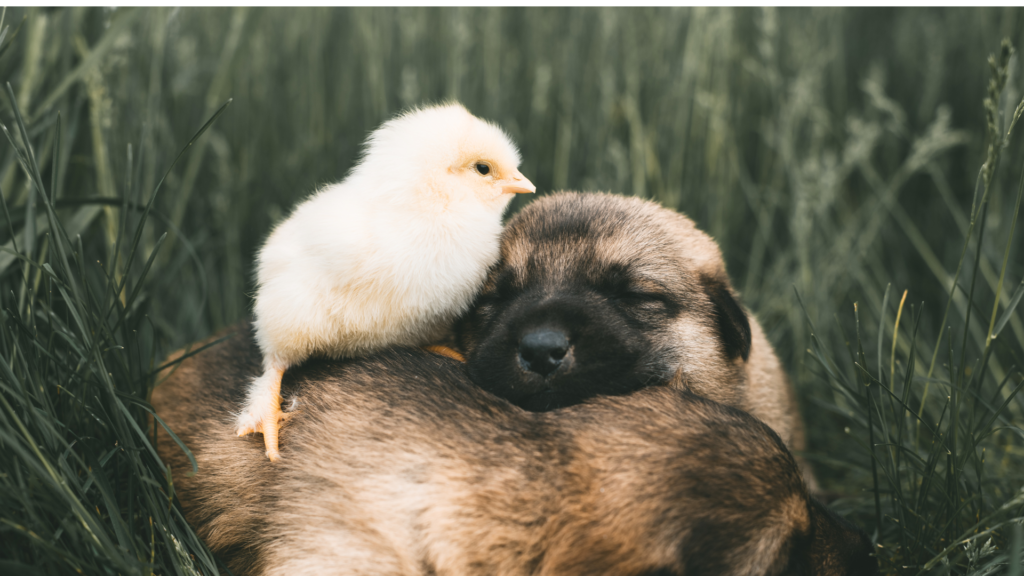
If you want to keep backyard chickens but you are afraid they may be making your dog sick, there are several precautions you can take:
Separate Living Spaces
To minimize the risk of disease transmission, ensure that your chickens and dogs have separate living spaces. Erect sturdy fencing or use a chicken coop with secure wire mesh to prevent direct contact between them. This helps reduce the chances of exposure to bacteria, parasites, or allergens.
Proper Hygiene
Practice good hygiene by washing your hands thoroughly after handling chickens or cleaning their coop. This prevents the potential transfer of bacteria to your dog or yourself. Keep the chicken coop clean and regularly remove and dispose of droppings to reduce the risk of bacterial contamination.
Supervision and Training
Supervise your dog’s interactions with chickens to prevent them from chasing, harassing, or injuring the birds. Train your dog to understand appropriate behavior around chickens, reinforcing commands like “leave it” or “stay.” Proper training can help establish boundaries and prevent accidents or stress for both your dog and the chickens.
Veterinary Care
Ensure that both your dog and your chickens receive routine veterinary care. Dogs should be up to date on vaccinations, including those recommended for zoonotic diseases like Salmonella. Regular check-ups and parasite control measures for chickens are equally important to maintain their health and minimize the risk of transmission to other animals.
Responsible Feeding Practices:
Avoid feeding raw or undercooked chicken products to your dog, as they can pose a risk of bacterial contamination. Stick to commercially prepared dog food or consult your veterinarian for guidance on safe and appropriate diets for your canine companion.
Can Your Dog Get Sick From Backyard Chickens?
While the risk of dogs getting sick from backyard chickens exists, it can be effectively mitigated through responsible practices. By maintaining separate living spaces, practicing proper hygiene, supervising interactions, and ensuring regular veterinary care for both dogs and chickens
